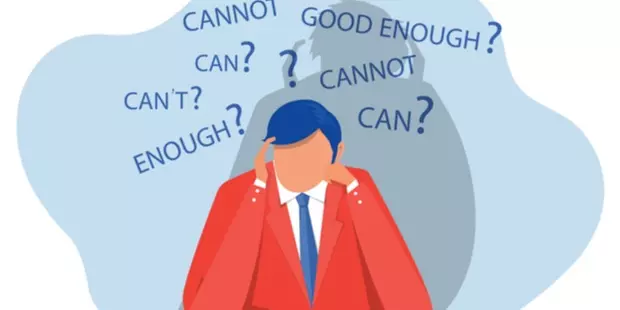We've all felt that we don't belong at some point in our lives. That we're out of our depths. That we don't know what we're doing. If you constantly doubt yourself and your abilities, you might be experiencing Imposter Syndrome. But what if we told you that playing poker online can help you deal with this syndrome and change your state of mind?
But for starters, it is important to understand: what is imposter syndrome? And how can poker help you vanquish it? Stay tuned and find out the answers to those crucial questions!
What is Imposter Syndrome?
Verywell Mind, an online magazine dedicated to mental health, defines imposter syndrome as the following: "…an internal experience of believing that you are not as competent as others perceive you to be."
This syndrome manifests in many different ways, depending on the person. Studies show that 9%-82% of people experience imposter syndrome. While those numbers seem unreliable, psychologists explain that the prevalence of imposter syndrome varies in different groups of people. That means that practically everything can affect your chances of experiencing this feeling of inadequacy: your age, gender, ethnicity, financial situation, and more.
But what does it mean to experience imposter syndrome? What are the symptoms? Here are a few of the things people with this syndrome might experience:
- Constantly fearing not living up to expectations.
- Inability to make decisions due to self-doubt.
- Setting highly challenging and unrealistic goals and getting frustrated when falling short of achieving them.
- Attributing success to external factors.
- Always believing your performance is not enough.
Unfortunately, there is no telling how long this syndrome might affect you. Sometimes, you might experience self-doubt for a limited time, after starting a new job or playing poker for the first time, for example. But others might suffer from imposter syndrome more often while participating in social events and so on. That's why getting rid of it might prove to be a bit difficult. But it is doable!
How to Use Online Poker to Overcome Imposter Syndrome?
The problem with imposter syndrome is that success won't necessarily affect how you perceive yourself. In fact, sometimes, success might even reinforce any negative thoughts you have of yourself.
So, how can you overcome this issue? And what does it have to do with poker? In short, poker is not only about luck. Poker is a game that requires logic and self-reflection if a player wants to turn from a rookie into a pro. And that is exactly what you need if you're experiencing imposter syndrome! Here are a few tools that might help you on your journey:
Separate thoughts from feelings
While your feelings can lead you to constant self-doubt, if you manage to inject pure logic into everything you do – you might be able to see reason. For example, when losing a poker match to less experienced players, those who suffer from imposter syndrome will immediately beat themselves up for it.
But the tendency to berate yourself for the smallest setbacks is often an emotional reaction instead of a logical response. To overcome it, you should try to put your feelings aside and look at the facts: what have you achieved this far? Will this setback really affect you that much?
Like in poker, analyzing every situation with an objective mind will allow you to avoid unnecessary heartache.
Challenge Your Own Biased Thinking
To succeed in poker, you must always challenge your beliefs. We often develop some sort of biased thinking without even noticing - whether those beliefs concern you or your opponents.
You might think you've figured out your opponent's strategy, and you know exactly how to beat him. You might also find yourself avoiding certain moves out of the belief that they will never lead you to victory. But the thing about poker is that the game is highly dynamic, and while those beliefs might have been true at some point, the situation is bound to change – and so should your thought process.
The same thing goes for all aspects of your life. If you believe yourself unfit to do your job or you think you are not prepared to take on some responsibilities, try to figure out whether you're acting out of bias. If you do, some self-reflection can help you erase those unhealthy thought processes and be more confident in yourself.
Learn from Your Surroundings
Many people who constantly feel like a fraud always compare themselves to others, getting mad at themselves for not being as accomplished as others. But instead of looking at your friends or co-workers with fear and trepidation, you should consider them your support system or even look at some as role models.
In poker, you are bound to be surrounded by experienced veterans. And while they can pose you some threat, you can learn a lot from them and grow as a player… and as a person. One of the most important things you might learn while playing poker is that it doesn't matter who you are or where you came from. Everyone can succeed with some hard work and dedication!
In Conclusion
Learning to play poker might help you at the tables, but it can also help you evolve as a human being. What is the best lesson you've learned from poker so far?

